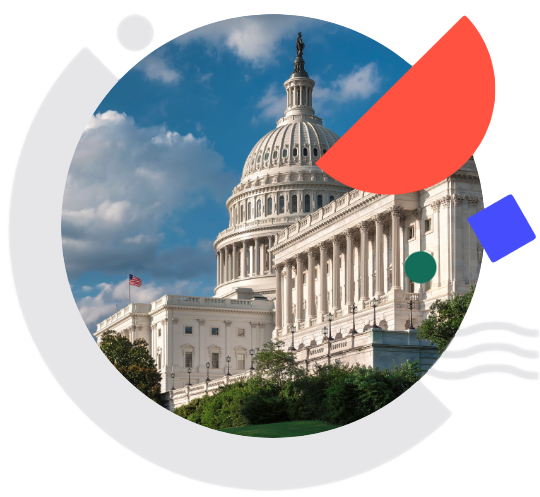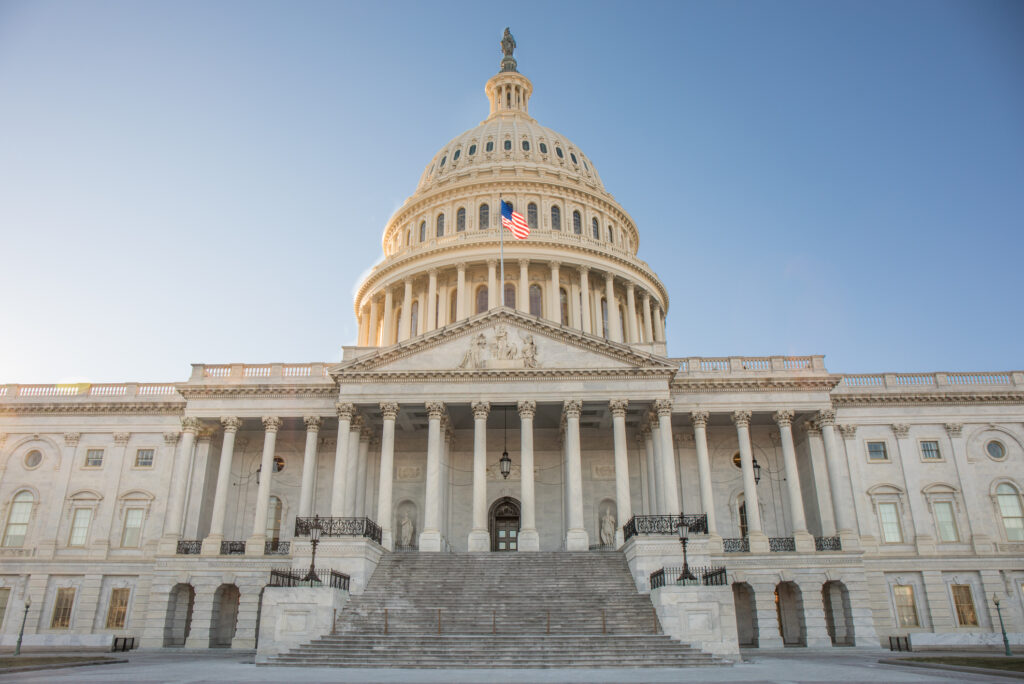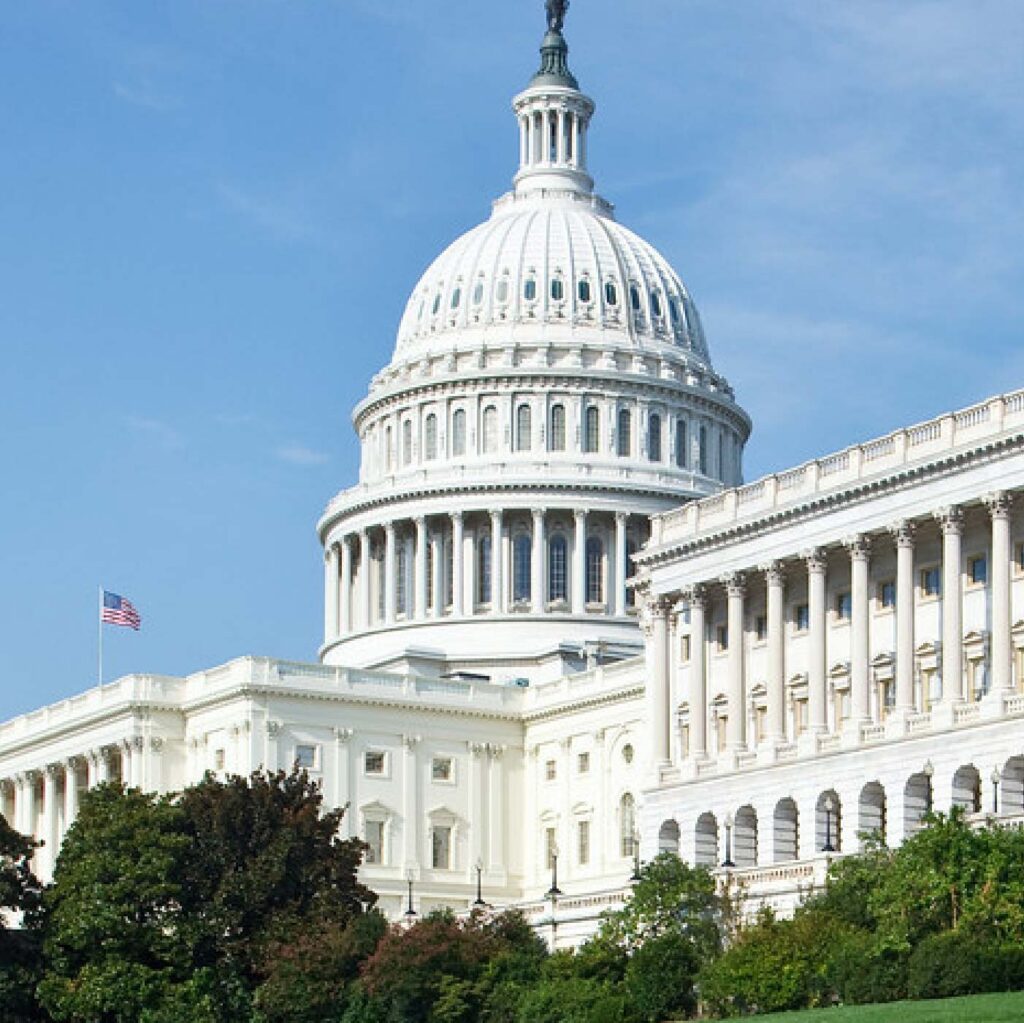Lawmakers Introduce Bill to Reauthorize CCDBG

WASHINGTON — Yesterday, a group of lawmakers led by Sen. Tim Scott (R-SC) introduced legislation to reauthorize the Child Care and Development Block Grant Act (CCDBG), which provides federal funding to states for child care subsidies for low-income families with children under age 13. The measure’s original cosponsors are Senators Richard Burr (R-NC), Shelley Moore Capito (R-WV), Susan Collins (R-ME), Chuck Grassley (R-IA), Lisa Murkowski (R-AK), Ben Sasse (R-NE), Dan Sullivan (R-AK), and Todd Young (R-IN), and calls for reauthorization of the program through FY2025. In response to the bill introduction, First Five Years Fund Executive Director Sarah Rittling released the following statement:
“High-quality child care is a necessity for working families across the country, supporting children’s learning and healthy development while their parents work or attend school. CCDBG is a cornerstone of America’s federal early childhood programs that enables states to make child care available at low or no cost to low-income families. At the beginning of the 117th Congress, every major early education and care program was due for reauthorization, including CCDBG, and this bill represents an important commitment to achieving that goal. We are encouraged by efforts to make long overdue updates to the existing law, including to expand eligibility, assist with affordability, and improve opportunities for providers. Ultimately, if we are to address the child care crisis in America, Congress must support a strong early learning system that meets the needs of families, providers, and our economy, and that is only achieved by providing the sustained federal funding required to truly make that system a reality.”
If sufficiently funded, this bill would enhance the program by increasing family income eligibility from 85% State Median Income (SMI) to 150% SMI. Additionally families making less than 75% SMI will have $0 copay while no eligible family will pay more than 7% of their income. The bill will require states to move to more reliable cost estimation models for setting provider payment rates in order to reflect the true cost of care; accounting for staff salaries and other benefits necessary to support and sustain a qualified, fairly compensated workforce. Additional support to staff including financial assistance to assist with credential/degree attainment, mentorship/apprenticeship opportunities, and retention grants and wage supplements. In order to address the pervasive issue of child care deserts, the bill provides facilities and supply funding to expand the care options for families while ensuring children are in healthy and safe environments. Prior to the pandemic, less than 20% of children eligible for CCDBG received support through the program due to underfunding.
The CCDBG Act was first enacted in 1990. In 1996, the Personal Responsibility and Work Opportunity Reconciliation Act created the Child Care and Development Fund (CCDF), which consolidates discretionary funds appropriated for CCDBG with entitlement funds under the Social Security Act (commonly known as the Child Care Entitlement to States (CCES)) into a single, unified federal child care funding stream to states. CCDF is administered by the Office of Child Care (OCC) within the Administration for Children and Families (ACF) at the United States Department of Health and Human Services (HHS).
At its inception, CCDF was viewed primarily as a workforce support, to help low-income families work or attend school. As understanding about the importance of early learning and development has grown, policymakers have invested in child care programs that enable parents to work, acknowledging and supporting the crucial role they play in advancing children’s healthy development, learning, and school readiness. A bipartisan reauthorization of the CCDBG Act in November 2014—the first such legislation in 18 years—codified that recognition and took steps to support care that positively impacts children during their formative years, while also allowing parents to enter into and remain in the workforce. Key revisions in 2014 included strengthening health and safety requirements for child care providers, increasing quality, and improving transparency so families are equipped to choose care that best meets their child’s and family’s needs.
Since then, Congress has made important, bipartisan investments in CCDBG, which have helped states make progress toward meeting these new standards, reaching more families, reducing waitlists, and supporting local providers; still, much work remains. Prior to the COVID-19 pandemic, families at every income level struggled to find and afford high-quality care, and less than 20% of eligible children received support through CCDBG. These challenges have only been exacerbated over the last two years, and families well beyond CCDBG eligibility are struggling more than ever before with child care access and affordability. What’s more, the unsustainable nature of running a child care business, which often results in low wages and benefits for early educators, has led to an exodus of child care professionals from the sector.
The overwhelming evidence makes clear that America’s child care crisis cannot and will not self correct, and significant, sustained funding is required to build an early learning system that meets the needs of those who rely on it.
The First Five Years Fund is the leading bipartisan federal advocacy organization working to ensure all children from birth through age five have equal access to affordable, comprehensive, high-quality care and education to support their healthy development and help them achieve their full potential in school and life. FFYF seeks to expand federal support for all early learning and care opportunities that are high-quality and focused first on serving those children most-at-risk. http://www.ffyf.org
###
Subscribe to FFYF First Look
Every morning, FFYF reports on the latest child care & early learning news from across the country. Subscribe and take 5 minutes to know what's happening in early childhood education.



